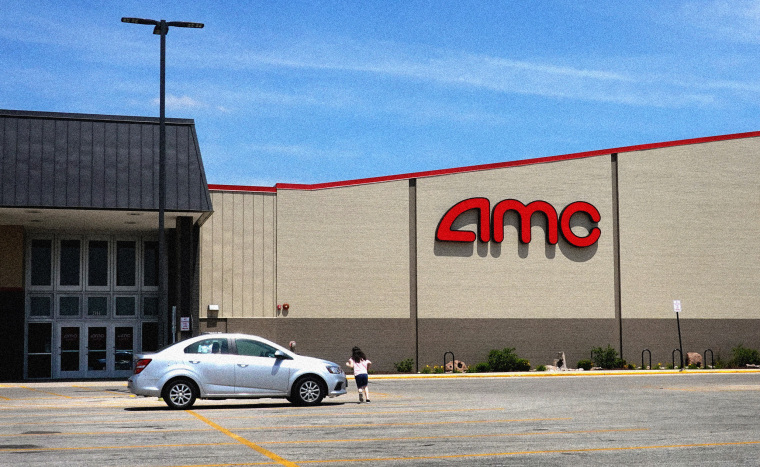The single strangest — and perhaps most important — investing story of 2021 is, of course, the rise of the meme-stock traders. Time and again over the past six months, tens of thousands of small investors collectively banded together to drive up the prices of struggling, heavily shorted stocks like GameStop, AMC and Koss. In the process, they've inflicted billions of dollars in losses on short sellers (who were betting that these stocks would fall), while making millions for themselves.
And while most market observers, including me, thought that the meme-stock bubble would quickly burst, leaving many retail investors holding the bag, it has proved shockingly resilient. GameStop's stock, for instance, is still up by almost 1,000 percent in 2021, while AMC's stock is up by more than 1,800 percent. Now meme-stock traders are doing something even more surprising: using their power to reshape corporate decision-making.
The pandemic crushed one of their targets, the struggling movie theater chain AMC, which had to shutter multiplexes across the country. AMC is also hobbled by a massive debt load, and it is unlikely to return to profitability any time soon. So when meme-stock traders started bidding its stock up, the company reacted as any rational company in the same boat would do: It sold more shares to the public. Over the past six months, it has raised more than $1.5 billion in cash by selling shares and had $600 million more in debt retired, putting its finances in a much better, if still not good, position.
Selling that many shares will usually hurt your stock price — the more you slice up your company, the more you're diluting the value of each share of stock. But meme stocks don't obey any of the usual rules — even as AMC kept issuing shares, its stock kept rising. Not surprisingly, then, CEO Adam Aron made plans to go back to the well again and raise more money.
Aron planned to ask shareholders at the company's annual meeting at the end of July to approve the sale of 25 million more shares, which would have allowed the company to raise close to a billion dollars without much dilution. But AMC's shareholders — 80 percent of whom are now retail investors, mostly meme-stock traders — had other thoughts. They vocally expressed their opposition, and so last week Aron tweeted that he was canceling the July vote and that AMC wouldn't be making any more such requests for the rest of the year.
Now, from the point of view of AMC's underlying business, raising more capital was unquestionably the right move. So why did AMC's investors oppose it? Because meme-stock traders aren't, as a group, all that interested in the businesses of the companies they invest in. They're interested in their portfolios' stock prices.
It's a kind of Bizarro World version of shareholder capitalism: The company's actual business has become almost irrelevant.
The traditional view of stock valuation is that the two things are connected: A company's stock price ultimately reflects the value of its business. Meme-stock traders have a different view: They see a stock's price as something that's set by an act of collective will and by gaming the system. And issuing more shares would make gaming the system harder by increasing the number of shareholders and making it harder to squeeze short sellers. AMC's raising more money doesn't fit into that strategy.
This is a deeply weird situation. Companies are sometimes taken to task for paying too much attention to what shareholders (usually big shareholders) want. But usually, what shareholders want is for companies to do things to increase profits, perhaps by downsizing staffs or selling off parts of the companies.
In this case, though, it's AMC's management that wants to pursue a strategy that could help the company become profitable again. But AMC's shareholders want it to pursue a strategy that would make it easier for them to pull off their schemes — even if that strategy is bad for AMC's underlying business. It's a kind of Bizarro World version of shareholder capitalism: The company's actual business has become almost irrelevant. AMC could be a shoe sales company or a water polo equipment manufacturer for all they care. The stock is all that matters.
Now, this seems like an obviously shortsighted approach. AMC still has more than $5 billion in debt on the books, and its core business is still struggling. And the stock's performance of late suggests it was a bad decision: The price is down by almost 30 percent in the past three weeks.
So perhaps reality is finally catching up with the meme-stock traders. Even so, it's unlikely to shake their faith in their collective power. And why should it? They've gone from being a trading curiosity to doing what typically only large institutional shareholders are able to do: dictate a company's business decisions.
Meme-stock traders shook up the stock market. Now they're influencing the real economy — even if, paradoxically, they don't seem to care much about it.
